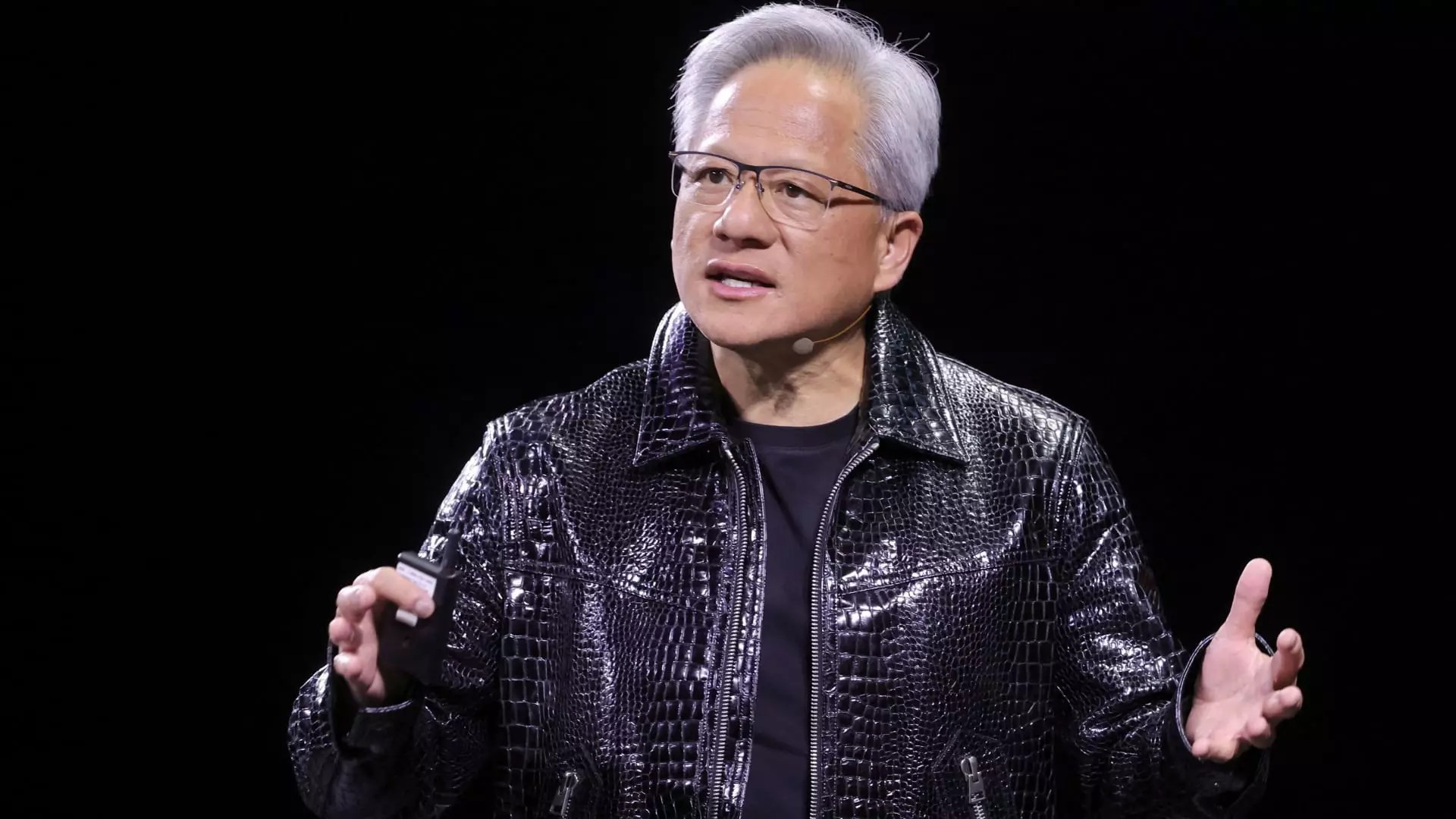In the rapidly evolving landscape of technology, one might assume that every leap forward brings us closer to groundbreaking concepts such as quantum computing. However, the rhetoric surrounding this field reflects a reality that is often characterized by confusion and disillusionment. Nvidia CEO Jensen Huang’s recent statements at the much-anticipated “Quantum Day” event unveiled a stark contradiction between hype and reality, igniting skepticism even in the minds of die-hard enthusiasts. Admittedly, the divergence between Huang’s initial 15-year timeline and the ongoing struggles of the quantum sector serve as a sobering reminder that technological advances are rarely linear.
Huang’s prior assertion that practical quantum computers were 15 years away from being usable, subsequently deemed optimistic, was not just an innocent misstep but rather a miscalculation that reverberated through the stock market. Investors, particularly in a field as nuanced and precarious as quantum computing, tend to overreact to statements made by influential figures—an unfortunate reality Huang himself noted during the event. His need to “walk back” those predictions only cements the notion that quantum technology is ensnared by a paradox: an insatiable appetite for advancement countered by the burdensome weight of reality.
Market Reaction: A Tumultuous Symphony
The aftermath of Huang’s remarks paints a picture of investors shaking off the dust of misplaced optimism. Key quantum stocks took a significant hit, with D-Wave plummeting by 18% and companies like Rigetti Computing and IonQ also experiencing steep declines. This tumultuous symphony of market reactions speaks volumes about the lack of confidence that stakeholders have in the sector’s trajectory. Huang’s attempts to espouse a more strategic narrative—that quantum should co-exist and complement classical computing—might sound appealing in theory, but skepticism remains thick in the air.
It’s critical to dissect Huang’s argument about quantum computing being a “special tool” rather than a substitute for conventional systems. This conceptual reframing aims to mitigate the unrealistic standards set by labeling quantum systems as mere supercomputers. However, the challenge lies in effectively communicating this to a market conditioned to expect revolutionary breakthroughs. The Quantum Defiance ETF’s poor performance, down over 4% this year, illuminates the collective doubts harbored by investors who had placed their faith in quantum’s potential. The failure of Huang’s approach at the ‘Quantum Day’ reflected a desperate bid to pivot narratives in a way that did little to rekindle investor trust.
Nvidia’s Role: A Double-Edged Sword
Nvidia’s role in the quantum arena navigates a precarious balance: the company thrives on the very technology it claims to be advancing, even as the quantum market struggles for legitimacy. Huang triumphantly announced plans to develop a research center in Boston, where collaboration between quantum startups and esteemed institutions like Harvard and MIT would be possible. While such initiatives certainly promise growth and innovation, they also carry the burden of responsibility. Will Nvidia’s support for quantum lead to tangible advancements, or will it serve only as a smokescreen for underlying market fragility?
Furthermore, the company’s strategy of employing classical GPUs to simulate quantum computations presents an intriguing yet conflicting proposition. While this approach demonstrates the practicality of today’s technology and offers a route for quantum research, it simultaneously raises questions about the viability of true quantum computing as a standalone entity. Today’s excitement seems inextricably linked to a classical paradigm, one that perhaps dilutes the revolutionary potential that quantum computing holds.
The Future: Optimism vs. Reality
Despite Huang’s optimistic declarations during the “Quantum Day” event, it’s evident that the quantum sector remains caught in a cycle of miscommunication and disappointment. The quest for meaningful advancements in quantum computing is a long and arduous journey fraught with technical challenges and market uncertainties. Investors and stakeholders must confront the reality that immediate breakthroughs may be wishful thinking, perhaps even futile.
If quantum computing is indeed poised to deliver extraordinary impacts, as Huang asserted, then it is essential for industry leaders to cultivate a narrative that reflects the complexity and nuance of this journey. Both the market and the public need a candid representation of the challenges we face, rather than the oversimplified dramatization of a technology that remains stubbornly in its infancy. Quantum’s promise will only materialize when there is an acceptance of the long game—one that requires patience, realistic timelines, and a persistent commitment to blending ambition with realism.


Leave a Reply